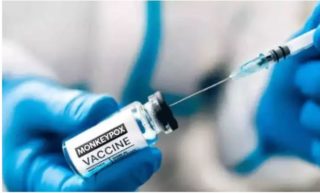
The World Health Organization (WHO) has made a significant stride in the fight against mpox, granting its first authorization for a vaccine against the disease. This crucial development comes as Africa grapples with a surge in mpox cases. The vaccine, manufactured by Bavarian Nordic A/S, is a major breakthrough in combating the disease.
Its approval paves the way for international organizations like Gavi and UNICEF to procure the vaccine, ensuring wider distribution and access. However, the limited supply due to a single manufacturer remains a challenge.
WHO Director-General Tedros Adhanom Ghebreyesus emphasized the importance of this first vaccine approval in the ongoing battle against mpox, both in Africa and globally. Recognizing the need for equitable access, WHO is establishing an “access and allocation mechanism” to ensure that countries with the highest need receive the necessary tests, treatments, and vaccines.
The approved mpox vaccine is intended for adults aged 18 and above. While WHO does not recommend its use for individuals under 18, it acknowledges the potential benefits in outbreak settings. The vaccine has demonstrated effectiveness in slowing the spread of mpox in adult populations, but its efficacy in children remains limited.
The Africa Center for Disease Control and Prevention has highlighted the disproportionate impact of mpox on children in Congo, where 70% of cases and 85% of deaths involve individuals under 15. This alarming statistic underscores the urgent need for vaccines specifically tailored for pediatric populations.
Since the outbreak began two years ago, over 120 countries have reported more than 103,000 mpox cases. Africa has been particularly hard hit, with 723 deaths recorded in over a dozen countries. The continent’s estimated need for 10 million vaccines far exceeds the current supply of 3.6 million doses pledged by donor countries. Congo, the most affected country, has received only a fraction of the vaccines it requires.
The WHO’s approval of the mpox vaccine marks a crucial step forward in the global response to the disease. However, addressing the challenges of vaccine supply and equitable distribution remains essential to effectively combat the ongoing outbreaks, particularly in Africa.
























